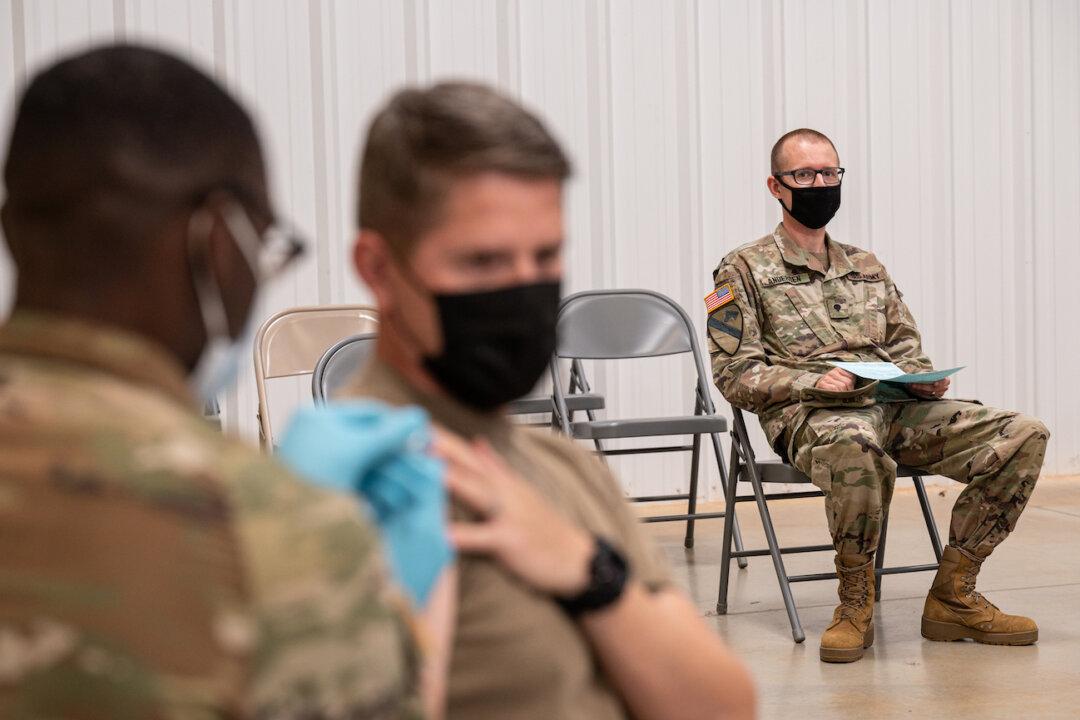The U.S. Army announced on July 21 that it has approved just 20 permanent religious exemptions from the COVID-19 vaccine mandate, after receiving thousands of requests.
Out of the 8,000 applications for a permanent religious exemption, a total of 1,465 have been reviewed by the Army. Just 20 have been approved—an approval rate of about 1.37 percent.




